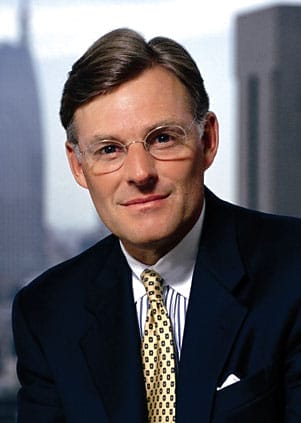 While Harold McGraw III shares the family name of the company’s founder, he has never mistaken McGraw-Hill Inc. for a family business. In his first decade as COO and then CEO, McGraw, known familiarly as Terry, took McGraw-Hill international, expanding into 38 countries—and into the digital world as well.
While Harold McGraw III shares the family name of the company’s founder, he has never mistaken McGraw-Hill Inc. for a family business. In his first decade as COO and then CEO, McGraw, known familiarly as Terry, took McGraw-Hill international, expanding into 38 countries—and into the digital world as well.
And as chairman of the Business Roundtable since 2006, he now leads the organization of chief executive officers, who in turn lead U.S. companies with $4.5 trillion in annual revenues, more than 10 million employees, and nearly a third of the total value of the U.S. stock markets.
When McGraw took over the operations of the publishing firm that his great-grandfather had started in the late 19th century, it was, to his mind, fat and lazy. It was 1993, and the digital revolution in media was stirring. McGraw wanted to take McGraw-Hill not only into the cyber-world, but around the world as well.
He first sold off what he believed were antiquated or difficult to distinguish magazine titles, keeping big sellers like BusinessWeek (6.3 million circulation) or premier publications in their fields like Architectural Record. He boosted the profile of the company’s Standard and Poor’s brand and built up the sagging educational publishing business, just as governments also built up spending for educational materials.
His biggest move, though, was into the digital realm. Ahead of the curve, he made money with BusinessWeek’s online presence and turned out educational publications online in proliferation. Standard and Poor’s was innovative in producing digital information for the financial markets. He pushed research and development, something normally left to businesses like pharmaceuticals or manufacturing, because he thought that the digital world made publishing more like those types of companies.
McGraw saw publishing, which had long been a stodgy business, as dynamic, and made it so. “What this is about is change and how we manage change,” he told the Financial Times in 2000. “We have to reinvent ourselves continuously. It was OK eight years ago to talk about it, but today we have got to do it.”


























